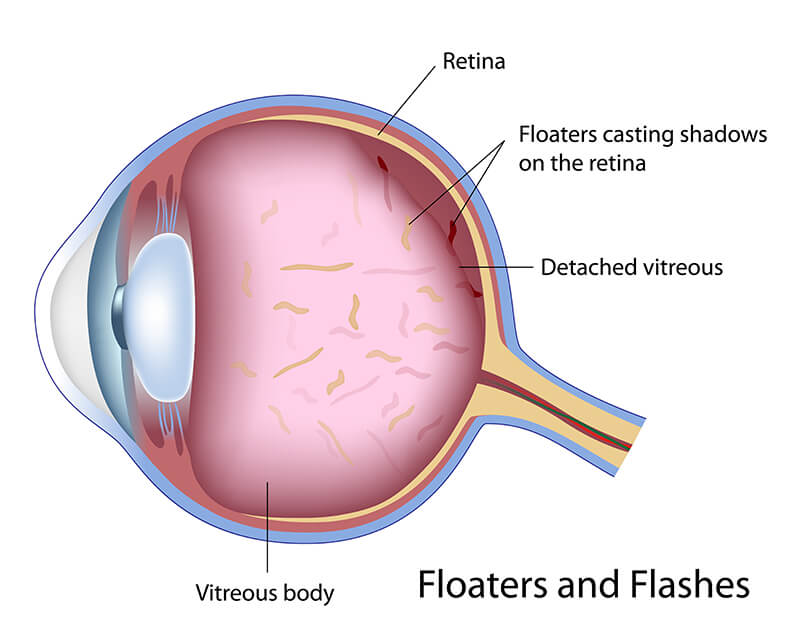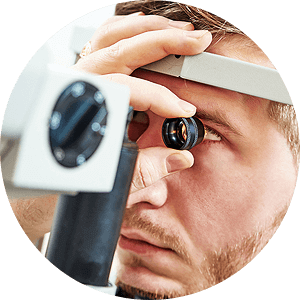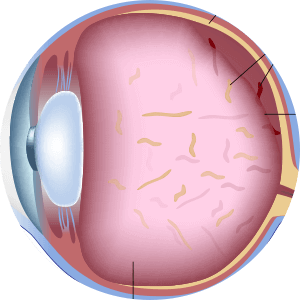Manhattan Flashes & Floaters Treatment
What are Flashes?
In the center of our eye, there is a gel-like substance that fills the interior. This is referred to as the “vitreous” gel. The vitreous is attached to the back wall of the eye, where the retina is located. As we age, the vitreous begins to shrink and pull away from the retina. When this happens, the vitreous separates itself from the retina, and the new space created fills with fluid from the eye. This is normal with aging and generally does not cause problems. Sometimes, as the vitreous is pulling away and separating from the retina, you may see flashes or streaks of light in your vision. These are called flashes.
Flashes themselves are nothing to be worried about, but they can be indicators of a bigger problem. If you are experiencing flashes, it would be a good idea to see a doctor for an exam. Flashes are a symptom of a detaching vitreous, but as the vitreous detaches, it has the potential to take the retina with it. If the vitreous is firmly attached the retina, the vitreous may pull on it until it tears. If there is a retinal tear, the fluid inside of the eye may see through and cause the retina to lift off the back of the eye. This is called a retinal detachment, which is a medical emergency and a doctor should be contacted. Not all retinal tears lead to retinal detachment, however.

What are Floaters?
Floaters are tiny clumps of cells or material inside of the vitreous. They cast a shadow on the retina, causing you to see tiny dots, clouds or cobweb shaped specks in your field of vision. These “objects” look like they are on the surface of your eye, when they are inside of the eye. You can often see them when looking at a plain background, like a blank wall or the sky. These are fairly common and again, not a problem by themselves.
Floaters can also be sign of a more serious condition. If you notice a “shower” of floaters and spots, sometimes accompanied by flashes, you should contact your doctor immediately. This may also be a sign of retinal tear or detachment. In cases of retinal detachment, action must be taken as quickly as possible to save the retina from nutrient and oxygen deprivation. Your doctor will work as quickly as possible to restore function before vision is lost permanently.



